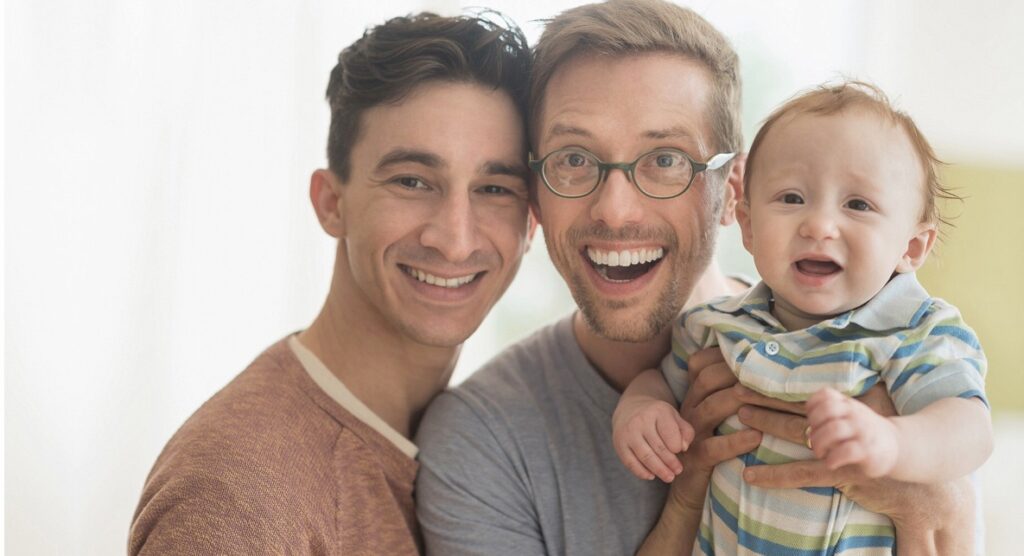
Same-Sex Parenting Research: A Critical Assessment by Walter R. Schumm, London: Wilberforce, 2018.
Social science has gained higher profile than usual in recent years as it has been called on to testify in courts of law and in the court of public opinion about same-sex parenting. Do the children of same-sex parents do any better or worse than children of opposite-sex parents? That is what lawmakers and judges have eagerly wanted to know.
The response from social scientists, with notable exceptions, has been unequivocal: there is ‘no difference’. This, they say, is the ‘scientific consensus’, from which it would be irrational, ‘delusional’ even, to demur.
They claim that children raised by same-sex parents do not show any differences at all compared to those raised by male-female parents – not in sexual orientation, sexual behaviour, gender identity, personal values, drug use or mental health.
Neither are same-sex unions said to be any less stable than male-female unions. As one 2006 paper put it: ‘Not a single study has found anything unstable about the families created by lesbian and gay parents.’
Walter Schumm is a social scientist who begs to differ. Reviewing hundreds of studies in his important new book Same-Sex Parenting Research: A Critical Assessment, the American professor of some 30 years finds plenty of evidence for differences of various kinds, and in the work of ‘liberal’ scholars not just ‘conservative’ ones.
Same-sex parents tend to take more progressive attitudes in areas like gender norms and sexual behaviour, as well as adopt a more permissive approach to parenting.
Reviewing virtually all extant research in the area, he finds studies which show, for instance, that same-sex parents tend to take more progressive attitudes in areas like gender norms and sexual behaviour, as well as adopt an overall more permissive approach to parenting (p 100).
These differences as well as the parents’ own example are shown to have a marked impact on their children, making them, for example, less distinctively gendered than the children of male-female couples – sons more feminine, daughters more masculine. This is especially so in the case of lesbian parents (p 155). To illustrate permissive attitudes: in one 2011 study the children of lesbian mothers were found to be almost three times as likely to have used illegal drugs (p 172).
Schumm’s method is nothing complicated, just more thorough and comprehensive than those he is criticising. As Dr Paul Sullins observes in his review of Schumm’s book: ‘In response to an influential, politically correct review of the literature that concluded there were no differences for same-sex-parented children in gender-role behaviour (the tendency for boys to do masculine things, or for girls to do feminine things), Schumm notes that the author cited only thirteen papers; he then proceeds to cite nine more on the topic, including three by the author of the review, that contradict the review’s conclusion.’
Dr Schumm similarly finds a raft of evidence that the children of same-sex parents are much more likely than those of male-female parents to identify as non-heterosexual: 60 per cent compared to 4 per cent in one 1999 study (p 135). In a 2013 study 27 per cent of the adult children of LGBT couples identified as other than male or female (p 140). A 1997 study found 43 per cent of the children of lesbian mothers stating that they think their mother would prefer them to be gay or lesbian, compared to zero per cent of the children of heterosexual parents (p 127).
Schumm relates numerous studies which show, contrary to the purported consensus, that same-sex parent relationships are considerably less stable than male-female parent relationships (p 88). Notably, unlike male-female relationships which statistically become more stable where children are involved, same-sex relationships are found to become less stable (p 88). Lesbian parents in particular have the most unstable relationships, with a 2019 study finding over 62 per cent of the lesbian couples in the study having broken up before their eldest child reached 25.
Continue reading here.
[Editor’s Note: This article was written by Jules Gomes and originally published at the Rebel Priest.]











